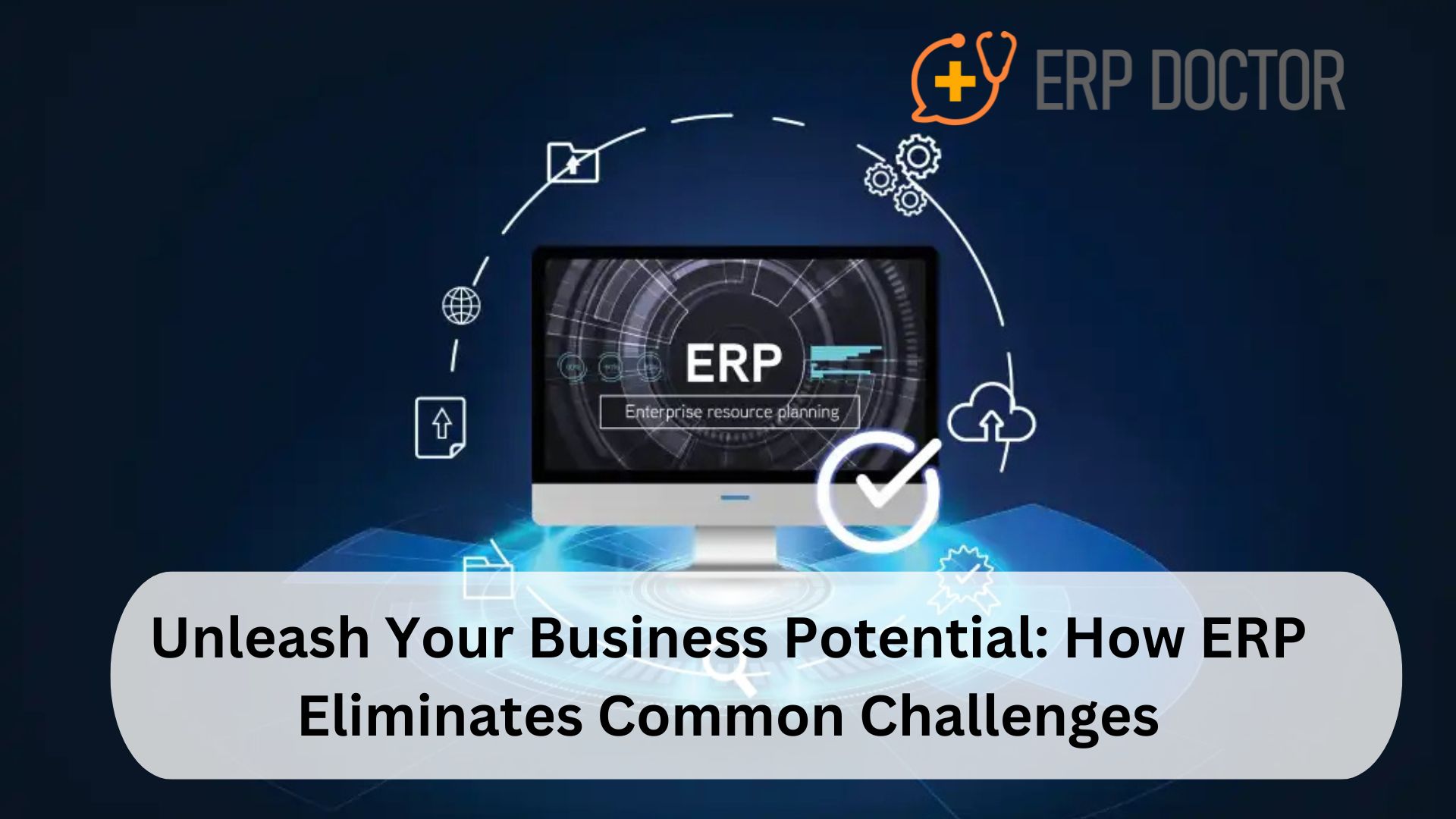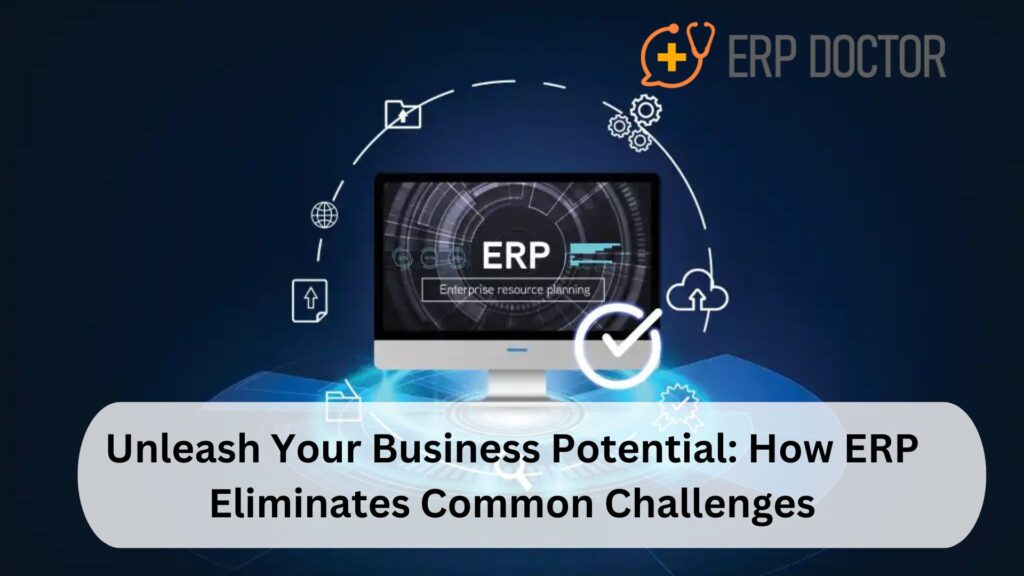
Unleash Your Business Potential: How ERP Eliminates Common Challenges

Why Your Business Needs ERP: Solving Key Operational Issues
In today’s fast-paced business world, companies face numerous operational hurdles that hinder efficiency and growth. Enterprise Resource Planning (ERP) is the ultimate solution to overcoming these challenges by integrating key business processes into a unified system. From inventory management to financial planning, ERP implementation helps organizations streamline operations, improve productivity, and drive profitability. In this blog, we will explore the most common business challenges and how ERP effectively eliminates them.
Common Business Challenges & How ERP Resolves Them
1. Lack of Data Visibility & Real-Time Insights
One of the biggest challenges businesses face is a lack of real-time visibility into their operations. Without proper data synchronization, decision-making becomes slow and ineffective.
Solution: ERP systems centralize data from multiple departments, providing real-time insights into sales, inventory, finance, and customer interactions. This ensures informed decision-making and improved strategic planning.
2. Inefficient Processes & Manual Workflows
Manual data entry, redundant tasks, and disconnected processes lead to inefficiencies, errors, and wasted resources.
Solution: ERP automates business operations, reducing human intervention and eliminating redundancies. This improves efficiency, enhances accuracy, and frees up employees to focus on value-driven tasks.
3. Poor Financial Management & Reporting
Without an integrated financial system, businesses struggle with tracking expenses, budgeting, and generating accurate financial reports.
Solution: ERP offers advanced financial management tools, including automated accounting, real-time budgeting, and customized reporting. These features enhance financial accuracy and regulatory compliance.
4. Inventory & Supply Chain Disruptions
Poor inventory tracking and supply chain inefficiencies result in stock shortages, overstocking, and delayed order fulfillment.
Solution: ERP systems optimize supply chain management by providing real-time inventory updates, automated order processing, and demand forecasting. This ensures a smooth supply chain and prevents costly disruptions.
5. Customer Relationship & Service Issues
Disorganized customer data and inconsistent service can lead to customer dissatisfaction and loss of business opportunities.
Solution: With integrated CRM functionalities, ERP systems store customer data, track interactions, and streamline communication. This enhances customer service, improves response times, and fosters stronger client relationships.
6. Scalability & Business Growth Limitations
Growing businesses require flexible solutions that can scale as operations expand. Outdated systems often fail to support business growth.
Solution: ERP solutions are highly scalable, allowing businesses to add new modules and functionalities as they grow. Whether expanding product lines or entering new markets, ERP adapts to changing business needs.
The ROI of ERP Implementation
Investing in ERP is a game-changer for businesses of all sizes. Some key benefits include:
- Increased Efficiency: Streamlined processes save time and resources.
- Cost Reduction: Minimized errors and optimized resource allocation reduce operational costs.
- Better Decision-Making: Data-driven insights improve business strategies.
- Compliance & Security: Built-in regulatory compliance features ensure adherence to industry standards.
- Competitive Advantage: Enhanced agility and productivity position businesses ahead of competitors.
Frequently Asked Questions (FAQ)
1. What is ERP and how does it help businesses?
ERP (Enterprise Resource Planning) is a software system that integrates core business processes into a single platform. It helps businesses streamline operations, improve data visibility, enhance decision-making, and boost efficiency.
2. What are the key benefits of ERP implementation?
ERP implementation leads to improved productivity, better financial management, optimized inventory control, enhanced customer service, and scalable business growth.
3. How does ERP improve financial management?
ERP automates accounting tasks, provides real-time financial insights, and ensures compliance with regulatory standards, leading to better budgeting and financial decision-making.
4. Can ERP systems help small businesses?
Yes, ERP solutions are scalable and can be tailored to meet the needs of small businesses, helping them automate processes, reduce errors, and support growth.
5. How long does it take to implement an ERP system?
The implementation timeline varies based on business size, requirements, and complexity. On average, it can take a few months to a year to fully integrate an ERP system.
Adopting an ERP system is a strategic move that eliminates common business challenges and propels growth. Whether you’re struggling with manual workflows, financial mismanagement, or supply chain disruptions, ERP implementation provides the tools needed to streamline operations and unlock business potential. If you’re ready to take your business to the next level, now is the time to invest in ERP.
Ready to implement ERP? Contact our experts today to learn how an ERP solution can transform your business!







